Jimmy Burns's Blog, page 9
October 16, 2015
John Cavadini review of Pope of Good Promise in The Tablet
15 October 2015 by Jimmy Burns, reviewed by John Cavadini
In his lively, sometimes compelling biography, Jimmy Burns sets out to offer his reader “fresh insight into a key spiritual figure of our times”, cautioning the reader that, nevertheless, this is “not a hagiography”. It is not, he assures us, the story of a “picture-book saint”, but of a “complex man” with a “mixed record”.
For example, the book’s most searching chapter, “The Dirty War”, sifts through the evidence for the Jesuit provincial Jorge Bergoglio’s relations with the Argentine military junta in the 1970s. Burns judges that Bergoglio cannot be credibly accused of collaborating with the generals, and yet that his conduct was less than heroic. He cites approvingly the view of Fr Michael Campbell-Johnston (one-time aide to the superior general of the Jesuits, Pedro Arrupe) that Bergoglio “had fallen short of the standards set by other more courageous members of the Church in the era of military government in Latin America”, including and especially Archbishop Oscar Romero and the Jesuit martyrs of El Salvador. Bergoglio had concentrated on diplomacy rather than public denunciation, and on his own direct action in harbouring at the Jesuit seminary, at definite risk to himself, escapees fleeing from torture and death, perhaps numbering 100. Burns quotes Thomas Reese SJ: “In the face of tyranny, there are those who take a prophetic stance and die martyrs. There are those who collaborate with the regime. And there are others who do what they can while keeping their heads low.” In Burns’ judgement, Bergoglio fell into the third category.
Yet this searching treatment of Bergoglio under the junta is not intended, ultimately, to discredit him but to set the stage for a story of “spiritual transformation” that begins with a “dark night” for Bergoglio after he was replaced as provincial and sent to Germany to do a doctorate. Since his election to the papacy, Francis has himself reflected publicly on his failings as Jesuit provincial, questioning his authoritarian style of leadership. Burns adds that many of those he (anonymously) interviewed agreed Bergoglio had “exercised his authority with an iron fist”. And, though Burns reminds us that Francis did not list his “ambiguous record on human rights” among his failings as provincial, nevertheless his record later as Archbishop of Buenos Aires shows that he had begun to look back on his actions during the Dirty War with a feeling that he had not done enough: “He was a man who listened to his conscience, and who now felt … he had a moral obligation to make up for the shortcomings he had shown as a leader while serving as Jesuit provincial.” Following in the mould of Romero, Bergoglio moved from “the political and moral shadowlands he had occupied” as provincial, because of, not in spite of, his promotion to archbishop: “like … Romero, his appointment to high office had brought with it paradoxically a new humility as well as courage in facing up to a range of issues …”
The best hagiographies emphasise the complexity of the saint in question, lest one might think that sainthood is bought cheaply or that one’s admiration is dependent on turning a blind eye to inevitable human shortcomings. They are often a story of conversion. Despite Jimmy Burns’ disclaimer, I wonder if Pope of Good Promise isn’t a little closer to the story of a “picture-book saint” than he imagines, with a “conversion” narrative – from the “authoritarian” to the consultative, the pragmatic to the prophetic, from “tradition, discipline and orthodoxy” to “the reforming Second Vatican Council”, from the failures of Benedict XVI to a new beginning – tailor-made for the (admirable) liberal kind of Catholic that Burns himself is.
Burns cites the earlier biography by Austen Ivereigh (The Great Reformer) rather negatively. Ivereigh is “a Catholic author who holds his subject in unwavering reverence”, and Ivereigh’s book is apparently the kind of hagiography which Burns is resisting. But – and Burns invites the comparison – Ivereigh’s biography is more thoroughly documented, more willing to specify the uniqueness of the Argentine situation, and finds more continuity across the various “reforms” that Bergoglio accomplished, including his reform of the Jesuit seminary and province. Ivereigh offers more texture on many points, including what “Peronism” is exactly, and what Bergoglio’s unique “theology of the people” amounted to. Burns, by contrast, mentions both only in desultory fashion. Burns’ chapters sometimes seem as though they were intended to be self-standing essays, as there is a lot of introductory and background material repeated as though it had not been given before (and I counted 17 typos and a picture caption that confuses the dispensing of ashes with Holy Communion). One can begin to wonder if the “conversion” narrative is at least partly a function of Burns’ somewhat disjointed compositional strategy, which would tend to highlight discontinuities.
Yet, paradoxically, Burns’ book is intended to serve the same purpose as Ivereigh’s book, that is, to feature Pope Francis’ strengths without compromising the truth, if for a different audience, one more likely to be impressed by conversion than continuity. And for that reason alone it is worth reading and enjoying.
The post John Cavadini review of Pope of Good Promise in The Tablet appeared first on Jimmy Burns.
October 11, 2015
Catholic Herald Book Review
by Jane Taylor
posted Thursday, 8 Oct 2015
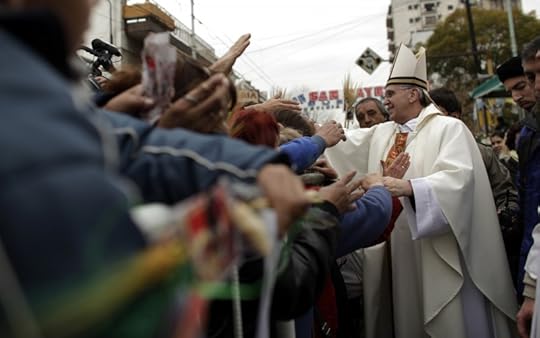
The future Pope Francis greets the faithful in Buenos Aires in 2009 (AP)
This latecomer on the Pope Francis biography scene is fresh, vivid and beautifully crafted
Francis: Pope of Good Promise
by Jimmy Burns,
Constable, £25
With so much now on record about Pope Francis and at least three weighty biographies by well-known Catholic writers published during the past two years, the question has to be: what’s new here? Jimmy Burns runs the risk of being pipped at the post by Paul Vallely, Austen Ivereigh and Elisabetta Piqué with his own late entry.
A mark of this new biography is a fresh and vivid mosaic of interviews Burns has secured with people of all ranks who have known Jorge Mario Bergoglio/Francis in one capacity or another over the years. The result is no hagiography, but rather a well-researched, carefully crafted exploration of a complex, sometimes enigmatic, often surprising pope and his long apprenticeship for the role.
During his pilgrimage through Bergoglio’s faith journey, Burns travels widely, recording his own encounters with Francis’s old friends, fellow seminarians, priests, critics, and those lay people whose lives he has touched.
A recurring word Burns uses to describe Bergoglio is “discreet”, which variously points to his diplomacy, his pragmatism and his occasionally mystifying silence at significant moments. A leading member of the Argentine political establishment, for instance, sees him as “a reasonable if politically cautious individual with whom he could deal discreetly, unlike others who threatened to confront him publicly”. Bergoglio (and later Francis) turns out to be a spiritual leader prepared to implicate himself in the labyrinth of secular politics – but not at any price. This is a pope who wants to listen, but who is not for turning.
“He was a devil, a little devil, naughty and very easily distracted at times,” recalls a school friend. Other classmates remember his intense faith and intelligence, his ability to grasp new ideas, his popularity and his willingness to help others. He was also, they said, quite sociable, and not a bad tango dancer.
His grandmother encouraged his vocation, something he later described to colleagues in Buenos Aires as “a great gift that sneaked up on me unnoticed”. Politically, the prevailing Peronism struck a chord with the Bergoglios, as it did many other lower-middle-class immigrant Catholic families, based on the notion that social justice can be reached by balancing the interests of capital and labour.
Reminding us that Donald Trump, Hitchcock, Robespierre and Freddy Mercury were all educated by Jesuits, Burns goes on to examine in some detail Bergoglio’s own Jesuit roots and his increasing engagement with the disinherited in Argentina. After training in Córdoba, he spent a year with Jesuits in Santiago, Chile, in a community dedicated to the example of Alberto Hurtado, a priest who devoted his life to improving the conditions of the marginalised poor.
Some while later, Fr Guillermo Marco, his media-savvy spokesman in Buenos Aires, recalls: “After a short time as bishop, Bergoglio began to distinguish himself from the rest … he didn’t use a chauffeur-driven car, he walked, and travelled in public transport … we were all pretty amazed at the time … he would go and visit individual priests … develop a personal relationship … listen to their problems, something that other bishops didn’t do as they settled comfortably into their elevated roles.”
With a sureness of touch, Burns probes the implications of Bergoglio’s rise through Church ranks; his crisis of conscience during the “Dirty War” in Argentina when he was accused of neglecting persecuted priests and families of the “disappeared”; his navigation of a major financial scandal in Argentina; his delicate role as a political broker during and after the Falklands War; his support of the curas villeros (slum priests) in Buenos Aires’s shanty towns; the challenges of being “God’s banker” and the abuse scandal.
But it is in his relationships with women that Francis’s essential generosity of spirit emerges. We need to bear in mind, explains Burns, their prominence in his life, beginning with the ubiquitous Marian folk images that exist to this day in South America, on the one hand, and, on the other, the prostitutes “who would come and unburden their consciences while denouncing the exploitation and cruelty to which they were subjected … because they considered him non-judgmental”.
A young unemployed drug addict who survived being beaten up, gang-raped and thrown into a stinking canal met Bergoglio on one of his slum visits. “I saw a father, I saw a light,” she tells Burns. “He said he wanted to help me train as a therapist so I could help other addicts and he managed to get me a scholarship to do a university course.”
An American nun, the Iron Man contestant Sister Gertrude, says: “I feel I can relate to him as a human being … I am appalled that there are people who criticise him when all he is doing is preaching the Gospel, respecting each individual … I mean they criticise me when I run, and I run 10 kilometres a day. Why would I stop? It’s a gift I’ve been given.”
This article first appeared in the Catholic Herald magazine (9/10/15)
The post Catholic Herald Book Review appeared first on Jimmy Burns.
October 6, 2015
Good crowd at Wigtown
Nice appreciative crowd at the wonderful Wigtown literary festival joined me on Saturday October 3rd to hear some thoughts on Pope Francis and buy my book!
We were blessed with beautiful weather and I was privileged to have Rod Pryde as my interviewer.Rod has returned to his native Scotland after working for several years in Spain for the British Council. I was delighted to meet him and know that as well as settling in one the most beautiful parts of the UK, he has now also become involved in the Edinburgh Festival.
Rod discussed Francis, Pope of Good Promise with me with a genuine interest in the subject, drawing me out to comment on the influence of my Jesuit education and my experience of Argentina as well as my personal spiritual journey that made this book what it is.
The post Good crowd at Wigtown appeared first on Jimmy Burns.
October 5, 2015
12 people who ruined Catalonia
From a haughty count to a tax fraudster, via a very vengeful dictator.
By
9/29/15, 5:36 PM CET
Updated 10/2/15, 11:54 AM CET
As pro-independence parties win a majority in the local Parliament but fall short of 50 percent of the popular vote, we name 12 people responsible for Spain’s potential constitutional crisis.
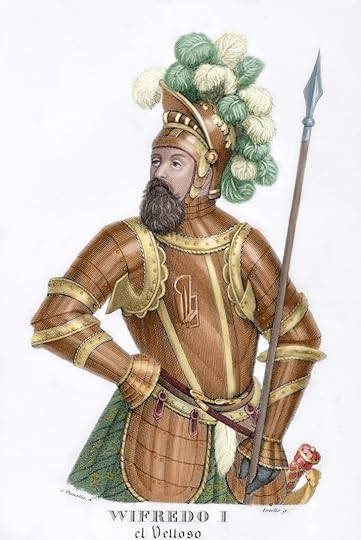
1. Wilfred the Hairy: Perhaps the Knight of the White Moon who defeated Don Quixote on Barceloneta beach was really Wilfred the Hairy — Guifré el Pilós in Catalan. The legendary 9th Count of Barcelona, who died in 897 AD, had estates which extended over lands on both sides of the Pyrenees. No matter that there is little evidence to substantiate claims that the Catalan flag, the Senyera, is derived from his coat of arms or that he ruled over a nation called Catalunya. Wilfred, in the context of a distant, romanticized past, has endured as an important symbol of Catalan nationalism.
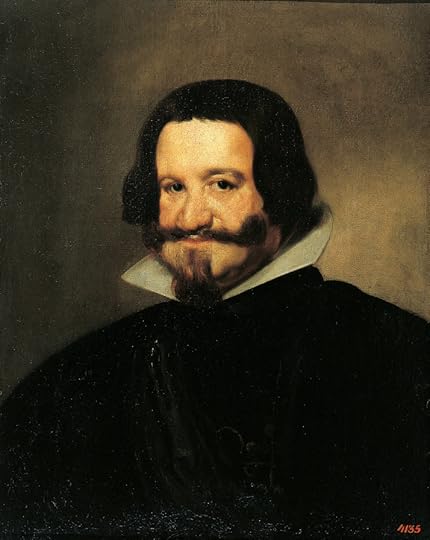
2. Count of Olivares: The arrogant, power-obsessed 17th-century grandee of Spain, forever immortalized astride his battle horse by the painter Velazquez, fuels the Catalan nationalist myth. In 1640, Olivares sent an army of 9,000 into Catalonia to raise more money to fight the French. Catalan historians portray Olivares as the bad guy provoking a rebellion in order to crush it and unify imperial Spain. He was unsuccessful and Catalan nationalists survived to fight another day in the War of Succession. The capitulation of Barcelona on September 17, 1714, was forever remembered by nationalists not as a defeat but as a heroic struggle for sovereignty. It was followed by the elimination of Catalonia’s “historic” rights by the Bourbon King Philip V.
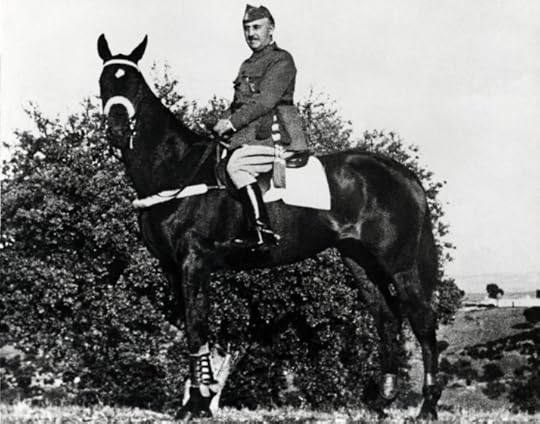
3. Francisco Franco: It was Spain’s 20th-century dictator Franco who perhaps most brutally repressed the notion of a Catalan cultural and political identity, separate from the rest of Spain. Barcelona was the last bastion of resistance to the right-wing military uprising which sparked the Spanish Civil War in 1936 — and General Franco did not forgive his enemies. Thousands of Catalans fled across the border to neighboring France, while those that remained and were judged too left-wing or anti-Spanish were executed or imprisoned, the official use of their language and national flags banned. It bred resentment for generations.
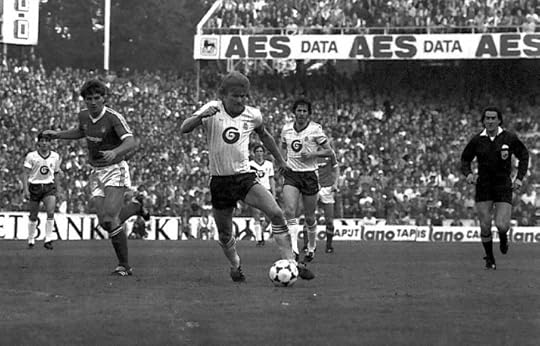
4. Emilio Guruceta: On June 6, 1970, fans of FC Barcelona staged an uprising at the club’s historic Camp Nou Stadium. The unwitting agent provocateur was the Basque-born ref Emilio Guruceta, who allowed a penalty in favor of rival Real Madrid. The stadium erupted in protest, Barca players staged a walk-out, while Catalan fans grabbed the ball and refused to give it back before invading the pitch. The Guruceta game was charged with symbolism, a momentary liberation (Franco had another five years to go) with Barca assuming its historic — and somewhat questionable — mandate of being mes que un club, “more than just a club.”
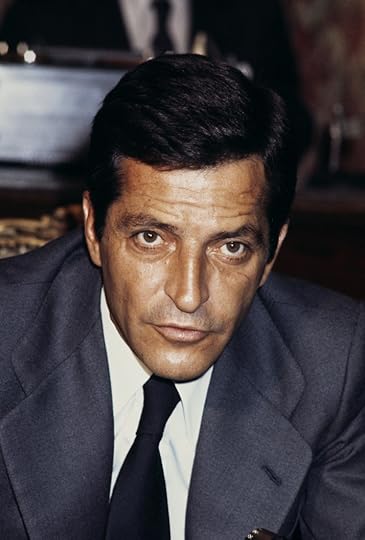
5. Adolfo Suárez: the former Franco apparatchik turned smooth, reforming prime-minister, has Madrid Airport named after him in tribute to the role he played in ensuring that Spain’s transition from dictatorship to democracy passed off without major violence. But Suarez created a political minefield by negotiating a Spanish constitution that created 17 autonomous regions, each having a share of a limited cake with Catalans greedy for the biggest morsel.
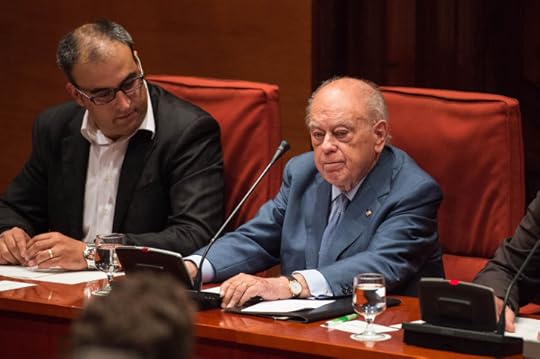
6. Jordi Pujol: The founder of the main nationalist party Convergencia Democratica de Catalunya (CDC) had a consistent record of promoting Catalan separatism under the Franco regime and became a figurehead for Catalan nationalism after running the regional government from 1989 to 2003. Despite once owning a regional bank that went bankrupt, he got considerable concessions for the region during his tenure, in return for the parliamentary support of successive minority Madrid governments on the left and right. In July 2014, an investigation by Spain’s Inland Revenue forced him to admit to concealing large sums of money in secret foreign bank accounts, and to failing to declare the money to tax authorities over a period of more than 30 years. Rather than blame Pujol, many Catalans pointed the finger at Madrid for many years of a cover-up that suited national politics.
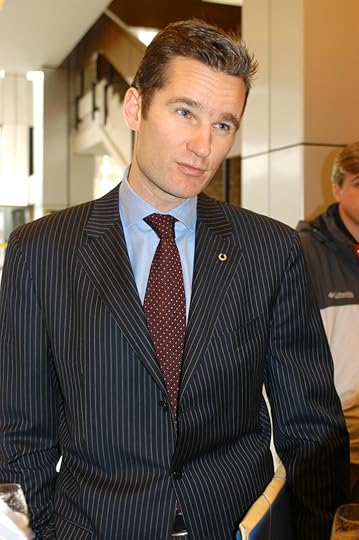
7. Iñaki Urdangarín: A former FC Barcelona professional handball player and member of the Spanish Olympic Committee, the husband of Spain’s Princess Cristina fueled Catalan republican sentiment by getting embroiled in an alleged fraud involving millions of euros of public funds which surfaced in 2011 and is the subject of an ongoing investigation. Cristina was stripped of her royal title by her brother Felipe when he took over as king following his father’s abdication. Spain’s new monarch was jeered and whistled along with the Spanish national anthem by pro-independence Barca fans in the Spanish Cup final.
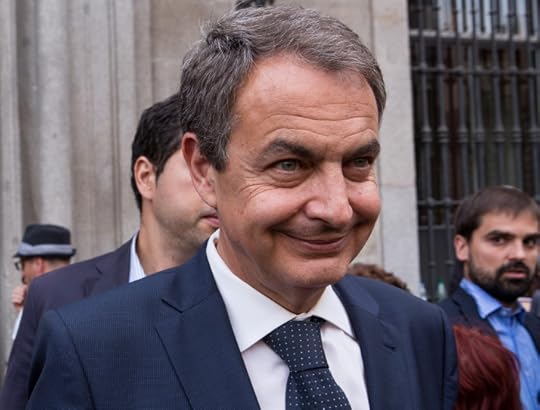
8. José Luis Zapatero: Prime minister of a socialist government between 2004-2011, he failed to deliver a coherent strategy on Catalonia, leading to growing tensions between the region and Madrid as Spain’s economic crisis deepened. Under his watch, a reformed version of Catalonia’s autonomy statute came into force, giving the regional government greater powers and financial autonomy. Its preamble uses the word “nation” to describe Catalonia. But in July 2010 the Constitutional Court in Madrid struck down part of the 2006 autonomy statute, ruling that there is no legal basis for recognizing Catalonia as a nation within Spain and that Catalan should not take precedence over Castilian in the region.
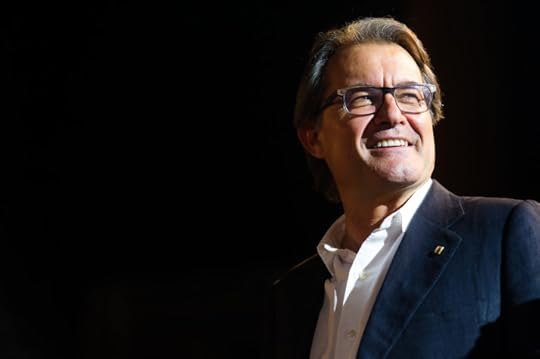
9. Artur Mas: Having owed his career to his “political father,” the self-confessed tax-fraudster Pujol — with whom he served as minister and official spokesman — Mas has hardly covered himself in glory. Rather than lead from the front since being elected in 2010 as head of the regional government, he has allowed the broad church of Catalan nationalism to be driven by emotion rather than reason, and by a radical and intolerant separatism. His promise of independence has been based on a false democratic premise, for it is neither supported by a majority of Catalan voters nor backed by the EU. It is also risks undermining the Catalan economy, as major investors could take fright and pull out as the independence movement steps up the pressure, perhaps ditching Mas for not delivering. Mas’ legacy is a Catalonia at odds with the rest of Spain, and divided within itself.
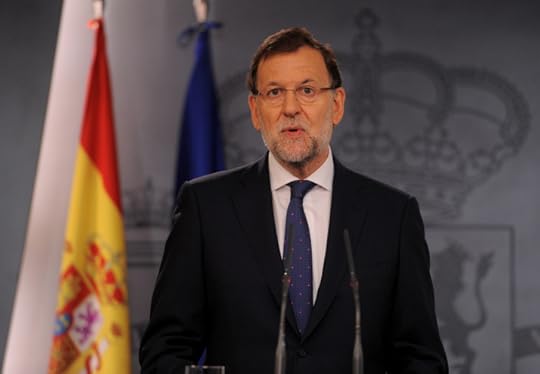
10. Mariano Rajoy: The Spanish prime minister has shown himself lacking the charisma and the statesmanship to tackle the Catalan question in any meaningful way other than as a potential illegal act which needs to be resisted at all costs. While other former prime ministers from the left and the right have humored the Catalans, Rajoy has contributed to their persecution complex by denying them the right to hold a referendum — in contrast to Cameron’s high-risk strategy over Scotland which had Scots voting “no” as part of a consensual democratic process.
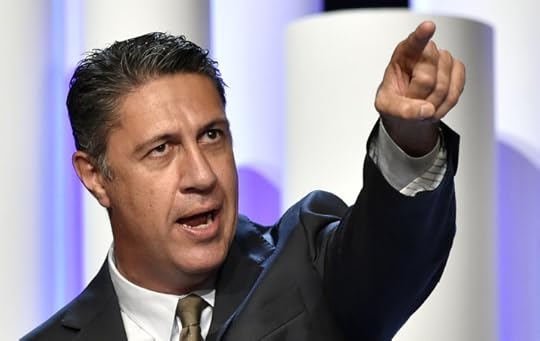
11. Xavier Garcia Albiol: Chosen by Rajoy as the Partido Popular (PP) regional leader in Catalonia, he has proved a disastrous Spanish bull in a fragile political china shop. The 47-year-old former basketball player has a forceful personality and presence — he is 6 feet 5 inches tall. He was chosen to lead the PP’s resistance to the separatists thanks to his success in becoming the mayor of Badalona, the region’s third-biggest city, with a campaign marked by its demonization of immigrants. In the recent Catalan elections, Albiol briefly became Trump-like, hitting out at Rajoy for his incompetence while showing himself to be to the right of Genghis Khan. Catalans responded by giving the PP their lowest-ever vote, causing it to be overtaken by the socialist PSOE and the moderate centrist Ciutadans as the main anti-independence parties.
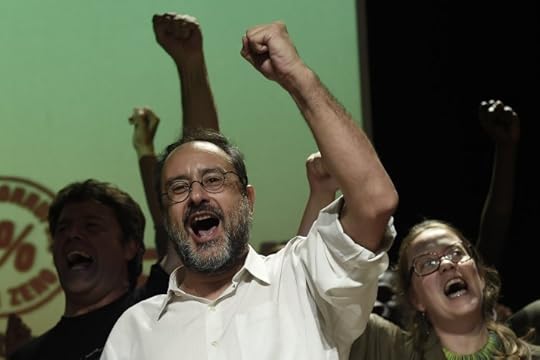
12. Antonio Baños: The tie-less Barcelona-born leader of the radical left-wing and republican CUP (Popular Unity Candidacy) is the joker in the pack of Catalan politics with the potential to cause more harm than good. The Jeremy Corbyn of Catalan nationalism, this journalist and part-time rockstar has never hidden his disdain for established politicians who he considers largely vainglorious, corrupt, and out of step with the common good. His small independence party now has enough votes in the Catalan Parliament to be courted by Mas and his allies in pursuit of the absolute majority they need to pursue independence. But Baños — who wants to get rid of King Felipe and Catalan independence to extend to Valencia, Aragon, and southern France — has said he won’t enter an alliance with Mas as its leader. He is looking for someone more radically separatist.
Jimmy Burns is an author and journalist. His books include “Barca: A People’s Passion” (Bloomsbury, 2009). His new book “Francis, Pope of Good Promise” will be published in September by Constable/Little Brown in the U.K. and St Martin’s Press in the U.S.
The post 12 people who ruined Catalonia appeared first on Jimmy Burns.
September 24, 2015
A Pope for All Seasons
For those predicting division and anger in the US Congress , Pope Francis delivered a characteristic surprise with one of his politically most finely balanced speeches since his election.
He won over the great American nation within seconds , paying tribute to the ‘land of the free and home of the brave’ before drawing on the example of four exemplary Americans who between them cut across race, party, religion, and sex: Abraham Lincoln, Martin Luther King, Thomas Merton, and Dorothy Day.
There were no walk outs, nor organised partisan sit-downs. Time and again applause, following the lengthy standing ovation that greeted him, interrupted him, as he talked respectfully to the most powerful nation in the world’s representatives in language that touched them all. How could they not applause when he reminded them , as one more son of immigrants, born in the Americas, that they too were foreigners in this land once upon a time.
This was a speech not so much addressed to Catholics but to the US people and through them to the world using the forum to speak out on issues that cut across countries and continents. The pursuit of the common good involved a culture of care not just for the poor but for the planet as a whole. When he talked about the right to life, he did not mention abortion specifically, but the need to abolish the death penalty. He paid tribute to the hardworking family man, who cares about those he loves more than about the kind of taxes he pays. The importance of family life came up more than once, drawing the warmest of standing ovations. . He thanked the peace-makers, and spoke out for the dignity and security of migrants. There were pickings here for Republicans and Democrats but no one could easily claim he was taking the side of one party or the other. That would to belittle a great speech- that of a global spiritual leader with a political nose for the occasion and an audience. Pope Francis, a Pope of All Seasons, a Pope of Good Promise.
The post A Pope for All Seasons appeared first on Jimmy Burns.
September 22, 2015
Pope Francis’s Cuban politics
An article in today’s influential Spanish newspaper El Pais by its respected Rome correspondent Pablo Ordaz suggests than not all has been is peace and love in the current Vatican press corps while in Cuba.
Commenting on the Pope’s visit to the island, Ordaz comments that it has been notable for its low-key and- in Ordaz’s view- disappointingly weak reaction to the Castro regime’s human rights record which showed its darker side when anti-regime leaflets were scooped up by security police, dissidents were prevented from getting anywhere near Pope Francis, and some were arrested.
Ordaz contrasts Francis’s softly softly approach in Cuba with his outspoken pronouncements on other political issues like global warming, migration, poverty, and capitalism which have certainly provided the media with more eye-catching headlines and earned Francis the reputation of a radical.
My Spanish colleague does not mention that his most direct political message in Havana was aimed at Colombia, exhorting its government and Farc rebels to carry on with peace talks. In part this was a veiled pat on the back for the Cuban regime which, together with the Vatican, has been helping mediate between the two sides. It was also a reminder that in the more than fifty years that have passed since Castro and his band began to export his ‘revolution’ to other countries in Latin America and Africa, Cuba has been defused, posing less of a risk to global harmony.
In fairness , the Pope’s message to the thousands of pilgrims in Havana’s Revolution Square — “Service is never ideological; we do not serve ideas, we serve people” — was, in its context, wilfully and characteristically bold given the Castro brothers’ Marxist-Leninism and past tendency to rule by decree. With many Cubans being given access to instant Wi-Fi coverage and communication involving the outside world for the time in their lives- part of Cuba’s opening to the world, which Pope John Paul 11nd called for during his visit back in 1998.
But Pope Francis was evidently on more of a spiritual than a political mission to Cuba and we saw an important outcome in the experience of Cuban state TV explaining in great detail the Catholic mass to its viewers-this in a country where the regime tried to relegate religion to minor status after the Revolution.
Fidel Castro’s encounter with Pope Francis isn’t Castro’s first gesture of reconciliation with the Catholic faith that educated him as a schoolboy- — the Cuban ruler broke the ice with John Paul II — but the “informal and friendly” conversation this Pope had with the man who embodies the Cuban revolution was still a remarkable instance of how times have changed for Cuba and for the Church.
One was also reminded of Castro’s prediction years ago that Cuba would only reconcile itself with the US when a black president was in the White House and a Latin American was Pope. He might have added that having been educated by the Jesuits, it would take a Jesuit Pope to finally bring Fidel back into the Catholic faith.
The post Pope Francis’s Cuban politics appeared first on Jimmy Burns.
September 21, 2015
Pope Francis as Trump’s Nemesis
Pope Francis stands for most of everything Donald Trump finds objectionable.
I would list this, in no particular order, as the following:
Kindness and tolerance of minorities and other races and religions.
Concern about global warming to the extent of calling for an immediate and drastic cut-back of polluting energy generators and waste.
A critique of unbridled capitalism and a belief in the common good, based on human solidarity, and a truly Christian community as envisaged by the Beatitudes.
Humility.
Spirituality.
Jesuitical Discernment.
An ability to listen to the other.
A God of Surprises vs a God of Mammon.
One way of the other, either Pope Francis or Trump will see their popularity ratings or fall in the US in the coming days . I suspect Francisco will prove Trump’s nemesis. He has God on his side.
The post Pope Francis as Trump’s Nemesis appeared first on Jimmy Burns.
August 20, 2015
Pope Francis and the Malvinas
Pope Francis and the Malvinas
The snapped moment of encounter projected fast and globally on the world wide web has become as much as a characteristic of the Francis papacy, as his twitter account @pontifex.
This is a papacy with a charismatic personality and instinctive communicator at its helm. It is also a papacy advised by media specialists and diplomats that know something about the opportunity offered by the digital age to spread a message with an impact that would have inconceivable just a few years ago.
Since Francis’s election, there have been examples of this communications strategy being used to underline the Pope’s humility and the humanity of the gospel message, from washing the feet of Muslim women (not turning them into slaves) to gently kissing and blessing children (not abusing them).
And yet while the transparency of Francis’s generosity of word and openness to the world is one of the great gifts of his papacy, it has also made him an easy target for those who want to try and use his global popularity to push a particular cause , and have him take sides.
The latest example of this is a photograph taken at this week’s general papal audience in St Peter’s Square ,widely published in the Spanish language media, of Francis holding a small poster urging the United Kingdom to enter a dialogue with Argentina over the Malvinas, as the Pope’s fellow countrymen and women call the Falklands, the UK governed islands in the South Atlantic.
Behind the apparent gesture of reconciliation between two countries that waged war over the islands back in 1982, following an invasion by the Argentina military junta, lies a determined diplomatic campaign by the government of Cristina Fernandez Kirchner to have the UK discuss the issue of sovereignty over the islands, with a view to handing them over to Buenos Aires- something which successive British governments have refused to do.
The UK’s bases its position on its continuous administration of the islands since 1833 (except for three of Argentine military occupation in 1982 ) and the islanders’ right to self-determination as set out in the UN Charter. The Falklanders have not indicated a desire for change-indeed they voted in 2013 by 99.8 per cent to remain British.
Argentine policy maintains that Falkland Islanders do not have a right to self-determination as British subjects because Argentina acquired the Malvinas from Spain in 1816 only to have their authorities expelled by military force by the British in 1833.
While Pope Francis as an Argentine was brought up believing that sovereignty over the Malvinas belongs to his native country, this an issue he has thus far avoided becoming directly embroiled in. Las Malvinas son Argentinas were drummed into Bergoglio when he was a young boy, but today this is a disputed claim not just by the UK but within the UN, and whatever love the islanders might have felt for Argentina at any point was literally shot to pieces by the military invasion of 1982 and the less than exemplary nature of Argentine democracy ever since.
Moreover while the Argentine claim under the military regime led to war, the present British rule of the islands represents neither any internal repression of the inhabitants nor a threat to world peace since neither side is threatening each other with another military conflict. True enough the Vatican in late 1970’s mediated successfully in the disputed Beagle Channel , but that was when two nominally Catholic countries-Chile and Argentina- were on the brink of war .
The more recent case of the restoration of Cuba-US relations, does not involve any issue of disputed sovereignty but has been the result of the Vatican facilitating dialogue between two nations that for political and commercial reasons had decided to take their relations out of the cold . Their dispute moreover has destabilised diplomatic relations more widely and at one point threatened all out nuclear war.
Certainly Pope Francis has taken an active personal involvement in the world’s messy ‘realities’ ( a favourite Bergoglio word), but he has thus far tread carefully not to allow his papacy to become part of the Argentine propaganda machinery- and he has been wise to do so.
It is hard to see how any change to the sovereign status of the Falklands Islands-however downtrodden its ‘colonised’ people and threat of the UK military base the spin doctors of Buenos Aires would have the world believe- should be a priority for a papacy that has defined the focus of its diplomacy as achieving peace, ending poverty, respecting the human dignity of people, and protecting the planet.
Moreover from the moment he stepped out for the first time onto the balcony in St Peter’s Square to utter his words as Pope, Francis knew that his office carried a responsibility that went beyond narrow national interests. While he was set to draw on his Latin American experience, his election as Pope challenged him also to face up to his role of teacher, prophet and teacher and, as a truly global spiritual leader, to transcend his own race and nationality.
And yet no head of state has visited the Vatican since Francis’s election as many times as President Fernandez. Few doubt her personal reconciliation with someone who when Archbishop of Buenos Aires her late husband and former president Nestor considered ‘leader of the opposition”.
Until last Wednesday, the British government, I understand had been reassured privately by the Vatican that it would not allow itself to be used by Buenos Aires over the Falklands/Malvinas. But one photograph has threatened such an assumption.
The post Pope Francis and the Malvinas appeared first on Jimmy Burns.
August 6, 2015
Francis’s God of Surprises
Much of the Vatican-including its majority of civil servants and regular press corps- is on holiday although evidently not Pope Francis.
On Wednesday of this week he resumed his weekly general audience after a month partly caught up in challenging foreign travels, some at life-threatening high altitudes, and spoke in a way that once again generated global new stories. This is a Pope that draws attention, rarely in a negative sense.
Pope Francis called for a church of “open doors” to divorced Catholics and their families, reviving the ongoing debate as to far the Catholic Church should tease the ban on Communion for couples who remarry without a church annulment.
Once again the tone and language of what Pope Francis has to say is what’s striking rather than its substance for here he was respectfully addressing traditional Church teaching but with a prevailing sense of compassion for those in need of healing and true reconciliation.
Referring to remarried divorced couples, the pope, said “the church knows well that such a situation contradicts the Christian sacrament (of marriage).” But he emphasized, “these people are not at all excommunicated.” “They always belong to the church,” Francis said. The church, he said, must be one of “open doors.”
This is a Pope that evidently speaks from the heart but not without method. Ahead of the Synod of Cardinals on the Family in October, he is not imposing his authority but opening an umbrella under which different views can be freely expressed. He wants Church leaders to break out of their inwards looking, silo, self-protective mentality, which allowed scandals to proliferate under his predecessors, and engage not just with each other but with the world at large.
The theme of collegiality was much emphasised during the Second Vatican Council but in practice had fallen by the wayside during the papacy of John Paul 11 after he raised false expectations with his 1995 encyclical Ut Unum Sint. Despite the encyclical’s call on Christian leaders to help the Pope find a new ‘way of exercising (papal) primacy’, no reform was put in motion. Only during the years of Benedict XV1 was the issue revived to the point of being seriously discussed in the meetings of cardinals that preceded to the conclave that elected a Pope of Good Promise in 2013.
Francis’s instinctiveness worries some traditionalists but it be wrong to conclude his papacy is rudderless. He is drawing on his years of experience of political manoeuvring and administrative experience in his native Argentine and within the wider Latin American church, consulting on reform, and looking for a way forward that broadens rather than limits the good news of the Gospels.
His papacy has a Jesuit in the driving seat, approaching Church teaching with only one dogmatic certainty that God is in all things, and that he is also full of surprises. As Francis told fellow Jesuit Antonio Spadaro: “We must walk united with our differences there is no other way to become one. This is the way of Jesus.”
The post Francis’s God of Surprises appeared first on Jimmy Burns.
July 13, 2015
Adios, Iker
They tried to make up for it today-the fans and the club and the execs in the Bernabeu with a belated act of homage- but neither the President of the Club nor your team mates were with you when, alone on sunday, you gave your final press conference as a departing Real Madrid player prior to your transfer to Porto. “C’est fini”,you said at the end of a press conference which inevitably had you shedding tears before the grateful photographers.
At the age of 34, you have a record as the player who has been involved at club level in most match victories in the Spanish League, conquered five League Championships, two Spanish Cups , and three Champions Leagues finals. Add to that- two European nation cups and one World Cup with the Spanish squad.
You deserved better from the likes of Mourinho who first tried to devalue you when he was manager at Real Madrid , and from Florentino Perez who ultimately decided you were expendable, but then goalkeepers would not be goalkeepers if they hadn’t assumed loneliness as part of their destiny. Like drummers they are an essential part of the team, but others tend to take the glory. You can take some comfort from the great French author Albert Camus who told us he had learnt all he needed to learn about life while playing as a goalie.
And yet even if your final phrase was uttered in French, your final performance at the club you have given the best of your football years to, was quintessentially Spanish in its Quixotic nobility . You told us that what was important was not that you were a good player or a bad one but that people considered you a decent guy. I certainly did, and so did many of your team mates and even rivals- Barca players like Xavi and Pujol and Iniesta included. They admired your sportsmanship as well as your talent playing for your club and for your country.
The Spanish national coach and former Real Madrid coach Del Bosque- another true nobleman- was among those who believed in you as a “great and natural captain’, so much so that he still hung on to you after everyone blamed you for La Roja’s failure to retain the World Cup in Brazil. How fickle can other people ‘s memories be ?
How can anyone forget you from your early days as a brilliant seventeen year old, later maturing so as to lay a claim to the pantheon of earlier great Spanish goalkeepers, with your beauty in flight and resilience under attack flight, honoring earlier legends like El Divino Zamora and El Gato de Maracana Ramallets.
Perhaps it is true about goalies, as Peter Chapman has argued, that they have had war waged against them-from the early days when a striker would bundle a keeper across the goal line and score, to the more contemporary indignities of the back-pass rule-and it’s a universal rule that the best of goalies are those that manage to keep a clean sheet.
But it is also true that Spain’s best goalie of the last two decades –and I am talking here of you, Iker – personifies those high ideals of the Cervantes hero who were supposed to make Spain great, a bastion against the enemy as well as an excuse for failure.
My enduring memory of you off the pitch is that spontaneous ‘live’ clinch you had with his girlfriend and future wife the TV sports presenter Sara Carbonero, the night La Roja became World Champions in South Africa. In its spontaneity and passion your kiss humanised Spain’s victory, made it lovable. Real Madrid will be a colder place without you.
The post Adios, Iker appeared first on Jimmy Burns.
Jimmy Burns's Blog
- Jimmy Burns's profile
- 14 followers



